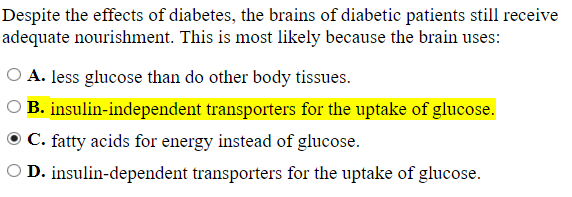6
663697
The TPR book says that ketone bodies can cross the blood-brain barrier and then be converted back into acetyl-CoA to enter the Krebs cycle to produce energy. Despite using this info to answer the question, I got it wrong. I'm not sure why utilizing fatty acids for energy would be incorrect.


